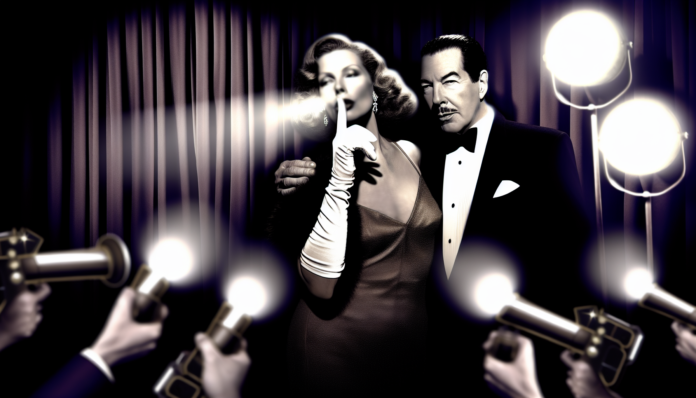Introduction
In the golden age of Hollywood, a tantalizing rumor sparked whispers that would echo through the halls of cinematic history. Cary Grant, the suave star known for his charming roles, and Randolph Scott, equally dashing and accomplished, were rumored to have had a romantic relationship that transcended friendlier ties. Their alleged affair was a scandal that shook the entertainment industry and encapsulated the complex interplay of sexuality, fame, and societal norms in the 1930s and 1940s.
During this era, Hollywood was not only a hub of entertainment but also a pressure cooker of moral expectations. The prevalent views on sexuality were steeped in traditionalism, leading to strict norms around public persona. A rumor of same-sex attraction could obliterate a promising career, making the world of Tinseltown a challenging stage for those who dared to defy societal constraints.
The Scandal
The origin of the rumor traces back to the close friendship between Grant and Scott, who met while acting in 1932’s Hot Saturday. Over the years, their bond grew, leading many to speculate about its true nature. The scandal ignited in 1940, as gossip columns and tabloid magazines hinted at a romantic connection, especially after the two were photographed together frequently, often sharing a home in a Beverly Hills mansion.
While there were no explicit “evidence,” whispers of their intimate camaraderie fueled imaginations. “They were like a couple, a modern-day Damon and Pythias,” one columnist noted, showcasing how close friendships between men were often interpreted through a lens of unbridled speculation.
Critics accused the duo of maintaining a “beard” relationship—where one partner pretends to be in a heterosexual relationship to conceal their true nature. As one source described, “The scandal surrounding them was fueled by the sheer impossibility of acceptance in an era that demanded conformity.”
Moral and Cultural Analysis
Society’s reaction was a mix of intrigue and condemnation. Public sentiment often leaned toward homophobia, with same-sex relationships considered taboo. The two men’s careers were not immediately harmed, but rumors cast long shadows. Grant and Scott remained friendly, with Grant famously denying any romantic involvement yet maintaining a playful demeanor about their closeness in interviews.
Key Points of Reaction:
- Media Sensation: Articles speculating on their relationship spread like wildfire, with magazines pouncing on any hint of scandal.
- Box Office Secrecy: While Grant continued to star in major films, the whispering behind-the-scenes hinted at the subtle pressures placed on actors to conform.
Consequences:
- Both actors faced scrutiny, but instead of succumbing to the pressures, they cultivated their careers. Grant went on to become one of Hollywood’s most iconic figures, while Scott continued to charm audiences in Westerns, hinting at the resilience required to navigate their world.
Modern Perspectives:
Today, the dynamics of celebrity culture and sexual identity have transformed dramatically. Public curiosity has shifted toward a more supportive lens that embraces LGBTQ+ identities. Had the alleged affair occurred in a contemporary setting, it might have been embraced or met with indifference, overshadowed by broader societal acceptance. Many modern audiences would celebrate such a relationship, recognizing that love transcends traditional norms.
In summation, the tale of Cary Grant and Randolph Scott stands as a fascinating reflection of its time—an interplay of scandal, societal expectation, and unspoken truths that continue to resonate in conversations around sexuality in Hollywood.

